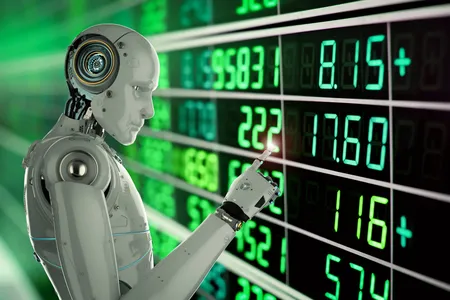Introduction
We are witnessing a revolution in the world due to artificial intelligence. This branch of computer science focuses on creating machines that mimic human intelligence in speech recognition, problem-solving, and pattern recognition tasks. Rapid advancements in AI technology have become a ubiquitous part of our daily activities, enhancing everything from consumer technology to healthcare, automation, finance, and banking. In this article, we are going to discuss AI Applications.
AI has provided many benefits and has improved our lives by streamlining processes. However, the powerful technology also poses potential risks that must be mitigated through responsible development and proper regulation.

Source: simplilearn
This article explores the various applications of AI and their positive impact on different industries. It also covers the potential risks associated with AI and the need for responsible development and governance to ensure its safe growth.
Learning Objectives
- Familiarize the reader with the basic concepts of AI and its importance in modern society.
- Provide a comprehensive understanding of the various AI Applications in healthcare, consumer technology, manufacturing, finance, and banking industries.
- Highlight the pros and possibilities of using AI applications in these industries, such as improved patient care and more efficient fraud detection.
- Discuss the potential drawbacks and ethical considerations associated with AI, including issues related to privacy, bias, and job displacement.
- Summarize the key points and provide takeaways for the reader to grasp better the impact of AI on our daily lives and its future potential.
This article was published as a part of the Data Science Blogathon.
Table of Contents
AI in Consumer Technology

Source: pathpartnertech
Smart Virtual Assistants
Intelligent virtual assistants like Siri, Alexa, and Google Assistant have become integral to our daily lives. These AI Application powered tools make it easy for us to perform tasks hands-free, from playing music to setting reminders and providing information. Some specific examples of tasks performed by intelligent virtual assistants include:
- Answering questions such as – What’s the weather like today?
- Setting up reminders for appointments or events
- Making phone calls or sending texts
- Play music or podcasts
AI-assisted Customer Service
Firms are adopting AI to upgrade their customer service through the use of AI-powered chatbots. These chatbots employ algorithms to comprehend customer inquiries and offer relevant information and solutions, enhancing the customer experience and reducing the burden on customer service representatives. A few well-known examples of AI-powered chatbots include:
- A chatbot that helps customers with banking inquiries.
- A chatbot that helps customers with banking queries
- A chatbot that provides customer support for a technology company
- A chatbot that assists with online shopping and delivery queries
Personalized E-commerce with AI
AI is revolutionizing the way we shop online. E-commerce websites use AI algorithms to track customer behavior and preferences, providing personalized recommendations and improving the shopping experience. Some specific examples of AI-powered personalized shopping experiences include:
- An online clothing retailer that suggests outfits based on previous purchases
- A grocery delivery service recommends recipes based on items in your virtual cart
- An online beauty store that makes personalized product recommendations based on your skin type and preferences.
AI in Healthcare

Source: velvetech
Accurate Diagnosis and Effective Treatment Plans
AI is making a huge impact on the healthcare industry by improving diagnostic accuracy and optimizing treatment plans. With the ability to analyze large amounts of medical data, AI algorithms can provide doctors with more accurate and precise suggestions for patient care. This can lead to better outcomes and reduce the risk of misdiagnosis for patients.
For example,
- AI algorithms analyze medical images to assist with the early detection of diseases.
- AI-powered systems that analyze patient data to suggest personalized treatment plans
AI-powered Drug Discovery
AI is revolutionizing the drug discovery process by analyzing large amounts of data related to drug development. This helps researchers identify new targets for drug development, accelerating the journey to find innovative and effective treatments for numerous illnesses. Some examples of AI in drug discovery include:
- AI algorithms that analyze genetic data to identify targets for drug development
- AI systems that predict the efficacy and toxicity of potential drugs
- Improving Access to Healthcare with Telemedicine and Virtual Services
AI-powered Telemedicine and Virtual Health Services
The COVID-19 pandemic has led to an increased demand for telemedicine and digital healthcare services, and AI is critical to making these services more efficient and effective. AI algorithms can triage patients, offer online virtual consultations, and remotely monitor patients. This improves access to healthcare by allowing individuals to receive medical attention from the safety and convenience of their homes. Some examples of AI-powered telemedicine and virtual health services include:
- AI chatbots that assist with triaging patients and booking appointments
- AI algorithms that analyze data to provide virtual health assessments
- AI-powered remote monitoring systems for patients with chronic conditions.
AI in Automation and Manufacturing

Source: data robot
Artificial intelligence is revolutionizing automation and manufacturing with several applications in the industry.
AI-powered Robotics
AI robots perform manufacturing tasks, ranging from simple assembly line work to complex processes. These robots can operate continuously without getting tired and can also be programmed to adjust according to manufacturing needs, making them valuable machines for companies.
For example, a car manufacturer can use AI-powered robots on their assembly line to handle tasks like welding, painting, and installing parts. This can improve production speed and accuracy while reducing the need for manual labor.
AI-powered Predictive Maintenance
AI algorithms are used to predict when manufacturing machines are likely to fail based on data analysis. This allows companies to plan for maintenance before a machine breaks down, reducing the risk of unexpected downtime and improving overall efficiency.
For example, an aircraft manufacturer can use AI to monitor their aircraft engines and predict when maintenance is needed, thereby reducing the chance of engine failure and ensuring the safety of their flights.
AI-powered Quality Control
AI algorithms are used to improve quality control in manufacturing. The algorithms are trained to identify patterns in quality data and can flag potential issues before they occur. This enhances product quality and reduces the risk of costly product recalls and other quality problems.
For example, a food and beverage company can use AI to inspect its products for defects and contamination, ensuring that its customers receive safe and high-quality products.
AI in Finance and Banking

Source: springboard
AI significantly impacts the finance and banking sector, providing numerous benefits to institutions and customers.
AI-powered Fraud Detection
Fraud detection is a crucial application of artificial intelligence in finance. It can analyze large amounts of financial data and detect potential fraud cases, reducing the risk of fraud and allowing financial institutions to respond quickly to potential threats.
For example, using artificial intelligence, a bank can monitor transactions for suspicious activity and flag any potential fraud cases and take action before damage is done.
AI-powered Credit Scoring
Artificial Intelligence algorithms can calculate credit scores based on financial data analysis for individuals and companies. This improves the precision of credit scores and quickens the credit scoring process, making it more accessible for people and companies to receive credit.
For example, lending companies can use AI to analyze loan applicants’ financial information and provide a credit score, allowing them to make informed lending decisions and raise loan approval rates.
AI-powered Investment Management
AI is helping to improve investment decisions by analyzing market data. This leads to reduced risk in investment choices and faster investment management. As a result, individuals can invest in stocks and other financial instruments more easily, enhancing the overall investment process.
For example, an investment management firm can use AI to analyze market trends and make investment decisions on behalf of its clients. Their investment outcomes will improve, and their risk of loss will be reduced.
Potential Hazards of Artificial Intelligence

Source: pack pub
While AI holds much promise, several potential challenges must be addressed. Among the most pressing are:
Job Loss
One of the major concerns with AI is job displacement. As AI becomes more advanced, it may replace human workers in many industries, causing widespread unemployment. This is a crucial issue that requires a comprehensive strategy to re-skill and retrain workers who may be affected by AI.
Bias and Unfairness
Another hazard of AI is bias and discrimination. The impartiality of AI algorithms is only as good as the data they are trained on. If that data is biased, the algorithms will be, too, potentially resulting in prejudice against certain groups of people. This is a pressing concern that must be addressed.
Privacy Risks
AI algorithms require a large amount of personal information to operate optimally, which leads to significant privacy risks. This data may be misused, and it is critical to establish robust measures to prevent unauthorized access or use of personal information.
Lack of Regulation and Oversight
In the end, there is a growing need for more regulation and monitoring of AI development. This is a major concern as AI becomes more widespread. Establishing guidelines and rules that align with ethical and moral values is crucial to ensure that AI is developed and used safely and responsibly.
Here are some examples of a lack of regulation can lead to
- Biased decision-making and discrimination.
- Displacement of jobs and lack of retraining support.
- Privacy and data security concerns.
- Spread misleading information through deepfake videos and social media.
Without proper regulation, AI may be used in ways that can harm individuals and society as a whole. So, we can use different applications which enable AI Applications.
Conclusion
In summary, Artificial Intelligence significantly impacts various industries and provides many benefits, such as improved healthcare and finance. However, important challenges must be addressed, such as job loss, biased outcomes, privacy issues, and the need for regulation.
Addressing these challenges will ensure that AI is used ethically and responsibly for the benefit of society. This will help realize AI’s full potential and create a better future for all. AI Applications are very large in number.
Key Takeaways
- AI is used in many industries, including healthcare, finance, automation, and manufacturing.
- AI provides solutions to challenges in these industries, such as online medical care, fraud detection, and improved investment management.
- AI is creating new jobs and improving the efficiency of specific processes, but there is a risk of job displacement that needs to be addressed.
- Bias and discrimination are potential threats to AI that must be addressed by ensuring that AI algorithms are trained on unbiased data.
- Privacy is a concern with artificial intelligence, as it requires access to large amounts of personal data.
- There needs to be an improvement in regulation for AI development, and it is crucial to ensure that ethical and moral principles are aligned with its development and use.
Thanks for reading!
Want to share something not mentioned above? Thoughts? Feel free to comment below.
The media shown in this article is not owned by Analytics Vidhya and is used at the Author’s discretion.





